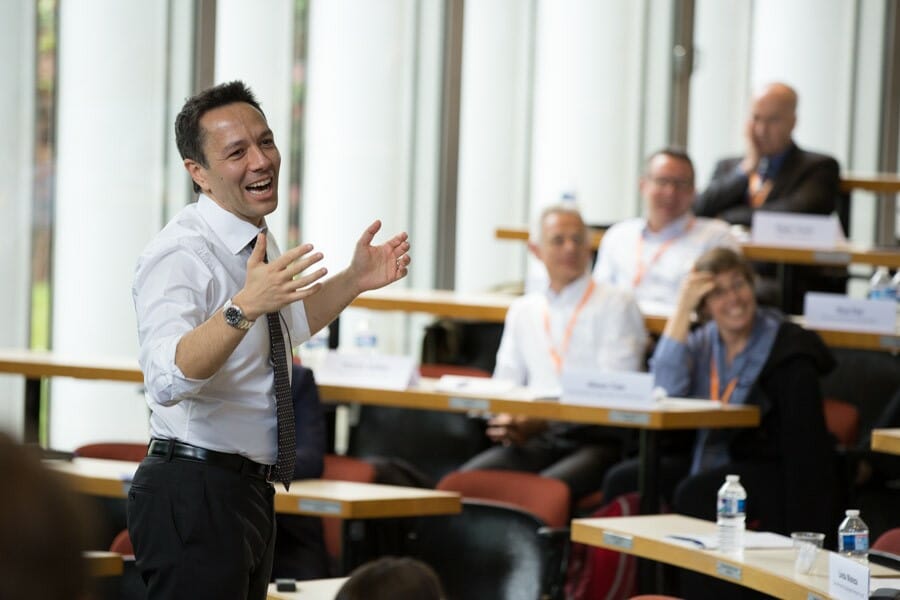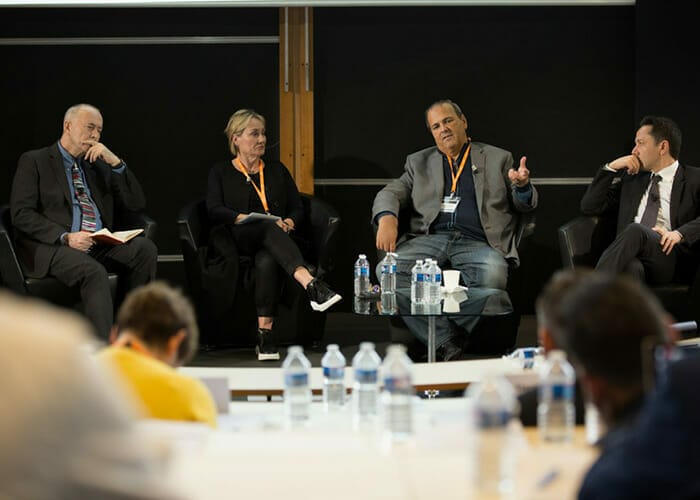How leaders are defined and identified needs upgrading in a world that has shifted from a mono-culture to nomadic leadership, says Gianpiero Petriglieri, an associate professor of organisational behaviour at INSEAD.
“We are still using an idea of leadership developed in the mono-culture, but we have a different world; now leaders struggle most with connections,” he told delegates at the Fiduciary Investors Symposium at INSEAD. “As a leader, you have to show you’re more than devoted; however, now we live in an age of nomadic professions, so leadership is not about how you stand out but how you have enough connections. People are more devoted to their work than to the organisation.”
Petriglieri, who is the academic director of the INSEAD Initiative for Learning Innovation and Teaching Excellence, suggested a different definition of leadership in an enterprise that reflects many cultures.
“[Leadership is] the courage, capacity, curiosity and commitment to work with, learn from and give voice to the other,” he said. “It’s a lot harder to have that type of skill. The commitment to a counterculture always puts you on the edge. It’s difficult.”
Petriglieri said we exist in the context of a leadership bubble.
“Leadership has become the single explanatory factor for everything that happens in the world. When things go well, we say there’s a good leader, it is a synonym for causality. Either there was good or bad leadership or no leadership.”
He also said Fortune 500 companies spend $145 billion a year on leadership development.
“They invest so much in something and we spend so much time on it. How can we be so attentive and get a result like 86 per cent of people at the World Economic Forum saying they don’t have the leadership they need? This is not just a theoretical problem, it’s a practical problem. There is a great disconnect, lack of meaning, lack of trust.”
While some explanations for this include incompetence or malevolence, Petriglieri’s work suggests a scenario in which neither of those are true, rather the outcome of what we understand and practise as leadership is no longer a good fit for the world in which we live.
“Good leadership is hard to define,” he explained. “There is no empirical evidence of leadership – just as there is no empirical evidence of love. They manifest themselves when you see some kind of behaviour.”
Leaders, he said, have such a sense of ownership over a community to improve or change it; they have a committed vision. Leadership, then, can be explained as an exchange of meaning for trust.
“If you observe a leader, look at whether they get stuff done, and whether people trust them,” he said.




